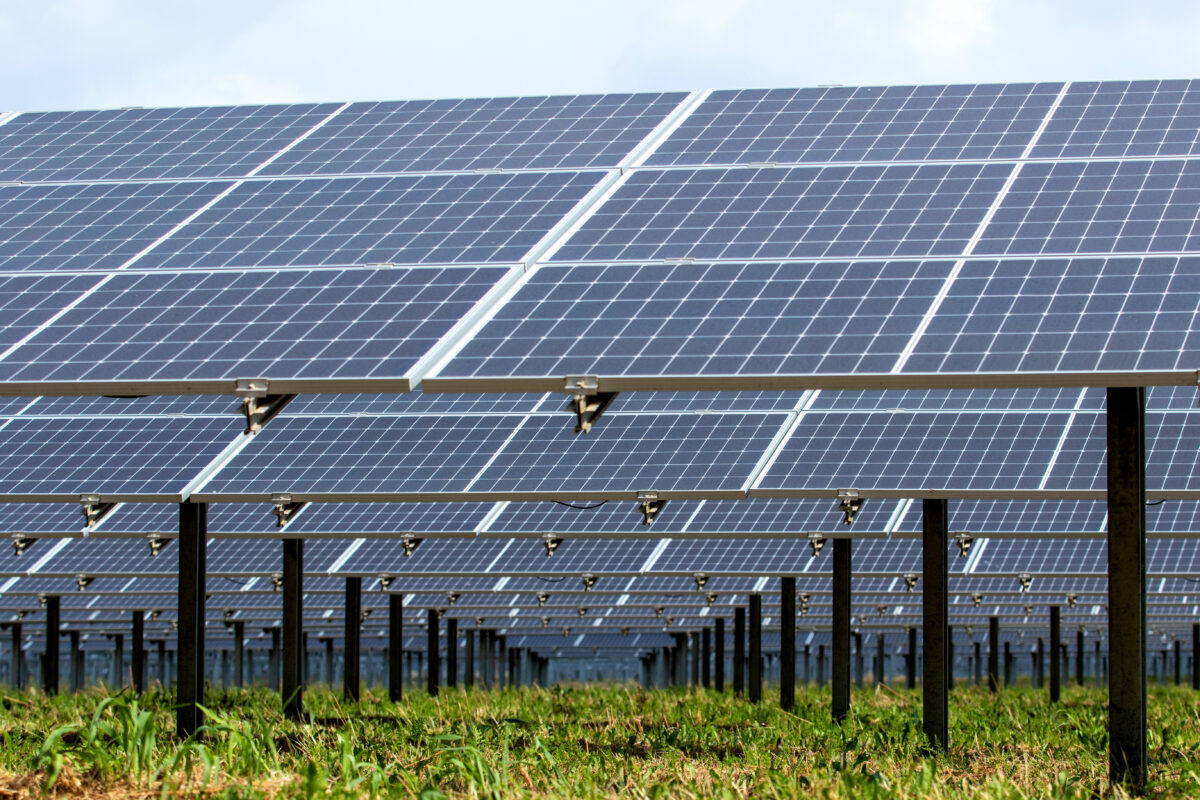Portugal has set ambitious 2030 targets for emissions reduction, energy efficiency, and renewable energy. The country aims to generate 85% of its annual electricity from renewable sources by 2030, up from around 60% in 2022, which was already one of the highest ratios in Europe.
Supportive regulation

Image: Sonnedix
The country saw a jump in the deployment of solar driven by the adoption of renewable energy auctions as a procurement tool for new utility scale renewables projects in June 2019. The first auction, for the right to build and operate floating solar plants on dam reservoirs, in April 2022, set a world record low price for future solar energy output, and was soon followed by an easing of environmental assessment regulation for projects of up to 100 hectares in size. At the same time, the government simplified permitting procedures, exempting renewable energy developers from securing an operating license or an operating certificate for power plants.
Those regulatory measures, among others, have gone a long way to incentivizing energy producers and expediating the roll out of renewables projects in the country. To date, government subsidies have supported more than 8 GW of solar and wind generation capacity in Portugal, including Sonnedix’s 49 MW portfolio of four solar plants, acquired in February 2024. To meet Portugal’s targets, however, that figure needs to be quadrupled and the renewables industry is still facing several bottlenecks that could put this aim at risk.
Transition challenges
One of these areas includes the speed and predictability of permitting, as deadlines for renewables projects seeking permits continue to face delays due to administrative backlogs.
Grid connection also remains a major point of contention. In 2020, the government's Directorate-General for Energy and Geology paused new applications for grid access. With all new connection requests on hold, and grid capacity auctions paused, the only way access can be obtained is through direct agreement contracts, which are costly and complex.
What’s more, there are currently no announced auctions other than for offshore wind, and no clear stance on energy storage. Past auctions and feed-in-tariff schemes were successful in providing long-term, 15-year, revenue certainty for clean energy producers but with nothing announced for future incentives, producers are more exposed to price volatility and face heightened risk profiles related to their projects.
Political upheaval
Recent political uncertainty in Portugal, triggered by the resignation of former prime minister Antonio Costa in November 2023, has also resulted in stricter processes for government agencies and a general hampering of progress for energy policy and regulation.
The recent general election was narrowly won by Portugal’s centre-right Democratic Alliance, which is attempting to form a minority government. That is likely to have some implications on renewable energy projects, including a potential shift away from direct government intervention to promote clean energy projects, with the Democratic Alliance generally advocating for a market-driven approach to energy production.
Meanwhile, having no clear majority in government will make it more difficult for the government to pass legislation, for example the rules required to streamline permitting processes. That could see the 2025 budget overturn the previous government’s updated, EU-financed, post-Covid Recovery and Resilience Plan, which allocates €715 million ($775 million) across all eligible low carbon technology facilities, including a €100m investment in batteries and grid flexibility.
Policy
What does the industry need to see?
Popular content
Aside from the removal of excess bureaucratic processes that slow permitting times, Portugal won’t be able to meet its renewable energy targets without urgently addressing the issues associated with its grid and introducing clear remuneration schemes for energy producers.
Investment in grid infrastructure, in particular battery storage, will help to address grid capacity and reliability concerns, in the absence of new network connections. Clear regulatory structures that fairly remunerate and incentivize hybridized or co-located projects would also support this. For example, the government could seek to simplify environmental impact assessments to incentivize hybridization; tap into recent legislation that clearly defines and permits hybridization and provide a route-to-market with existing assets. Lisbon could also open grid balancing mechanism payments to batteries, to support revenue stacking.
Lastly, Portugal needs the reintroduction of clear remuneration mechanisms for future projects: The International Energy Agency has estimated that an effective auction process for renewable energy projects should result in almost 2 GW of new renewables generation coming online in the next few years, which would triple Portugal’s PV capacity.
Realising potential
This leads us to where we are headed. Portugal still boasts one of the highest ratios of renewables generation for the electricity sector anywhere in the European Union. In 2023, renewable power sources supplied 61% of Portugal’s electricity, with solar accounting for 7%. The country is home to large scale renewable energy projects, many currently in development, such as Sonnedix’s solar Douro project which is forecast to generate approximately 234.5 GWh of clean energy per year, enough to power 78,000 Portuguese homes and avoid 35,000 metric tons of CO2 emissions annually.
To keep up with its ambitious decarbonization targets, however, the roll out of such renewables projects needs to happen faster and on a greater scale than ever before. Portugal in 2023 more than doubled its targets for solar capacity, to 20.4 GW by 2030 but further support and clear regulatory frameworks are needed to turbocharge renewable power production and to make this ambition a reality.
By addressing grid capacity through clear regulatory structures that incentivize flexibility, and targeted policy aimed at speeding up and predicting permitting, Portugal can generate even more clean, reliable, and affordable energy to accelerate its energy transition and meet its net zero goals.
About the author: Alessandra De Zottis is senior government and regulatory engagement manager at Sonnedix, a global renewable energy producer with a pipeline of more than 10 GW of generation capacity across 10 countries. De Zottis is responsible for setting and executing Sonnedix’s global regulatory strategy and has more than a decade of experience in the energy sector, gained at international utilities and trade associations.
The views and opinions expressed in this article are the author’s own, and do not necessarily reflect those held by pv magazine.
This content is protected by copyright and may not be reused. If you want to cooperate with us and would like to reuse some of our content, please contact: editors@pv-magazine.com.


2 comments
By submitting this form you agree to pv magazine using your data for the purposes of publishing your comment.
Your personal data will only be disclosed or otherwise transmitted to third parties for the purposes of spam filtering or if this is necessary for technical maintenance of the website. Any other transfer to third parties will not take place unless this is justified on the basis of applicable data protection regulations or if pv magazine is legally obliged to do so.
You may revoke this consent at any time with effect for the future, in which case your personal data will be deleted immediately. Otherwise, your data will be deleted if pv magazine has processed your request or the purpose of data storage is fulfilled.
Further information on data privacy can be found in our Data Protection Policy.